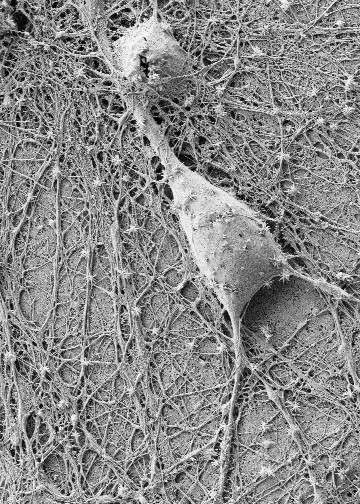Will Nanotubes Make You Super-Smart?
 Researchers in Italy and Switzerland have found carbon nanotubes to be bio-compatible and that the can be attached to neurons to boost the natural signal-processing capabilities of those neurons.
Researchers in Italy and Switzerland have found carbon nanotubes to be bio-compatible and that the can be attached to neurons to boost the natural signal-processing capabilities of those neurons.
“Our findings show that carbon nanotubes, which are as good an electrical signal conductor as the nerve cells of our brain, form intimate mechanical contacts with the cellular membranes, establishing a functional link to neuronal structures,” said University of Trieste (Italy) professor Laura Ballerini…
…the current results explaining the biocompatibility of carbon nanotubes hold the promise of enabling permanent repairs to be made to the faulty neurons, enhancing the performance of these networks and restoring their original functions…
The researchers propose engineering carbon nanotube scaffolds as electrical bypass circuitry, not only for faulty neural networks but potentially to enhance the performance of healthy cells to provide “superhuman” cognitive functions. [Emphasis added. From EE Times – Nanotubes shown to boost neuron signals by R. Colin Johnson.]
There are still many obstacles to overcome, according to the story. Keeping the nanotubes and neurons mechanically stable is one. Also, a great deal of work remains to determine the exact details of where to attach the nanotubes and what types of signals actually create beneficial effects. Still, this work is one more step in establishing the technology not only of cognitive improvement but also of brain/machine interfacing.
Read more about interfacing neurons and nanotubes at neuronano.net, home of the EU-funded NEURONANO project. The photo (from NEURONANO) is a neuron grown on a carbon nanotube layer.
